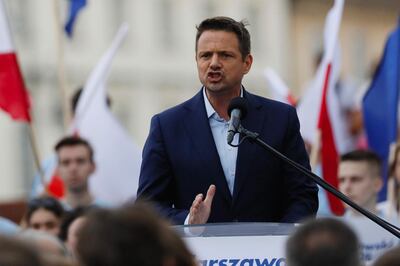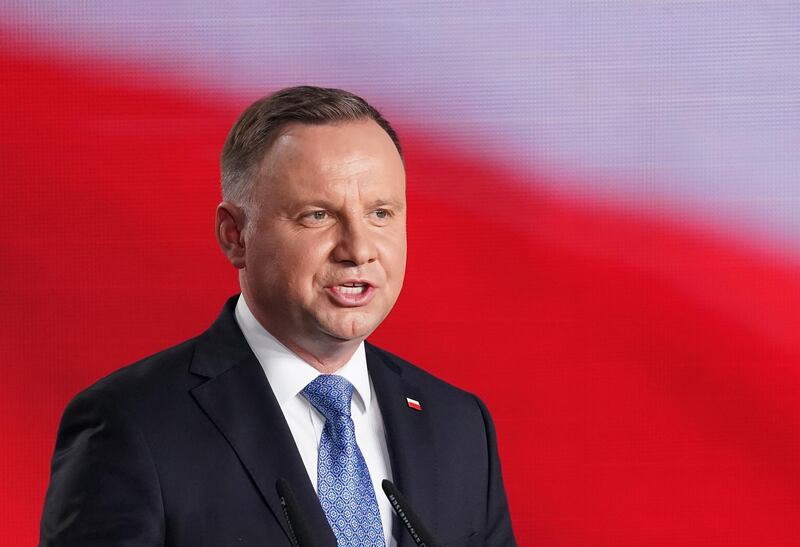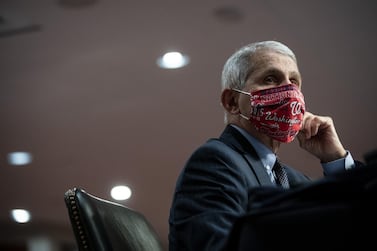The Donald Trump-allied leader of Poland came first in the country’s presidential election but failed to receive enough votes to win outright.
Conservative incumbent Andrzej Duda, who is backed by the populist Law and Justice party, won 43.7 per cent of votes with more than 99 per cent of polling stations counted, in an election that had Poland’s relationship with the EU at its heart.
Mr Duja’s closest rival is the liberal Rafal Trzaskowski of the Civic Platform party, who gained 30.3 per cent. Currently mayor of Warsaw, he has portrayed himself as the “candidate of change” and is backed by the party that made former European Council president Donald Tusk prime minister in 2007.
A run-off between the men, both aged 48, is expected in two weeks and will determine whether the ruling Law and Justice party can complete its push to seize more control of the economy and the courts.
Mr Duda has endorsed the government’s power grab, while a win by Mr Trzaskowski could cut short the plans and help rebuild Poland’s strained ties with its EU partners.
Poland’s role with the EU was a crucial sticking point in the run up to the election with Mr Trzaskowski vowing to undo years of uneasy relations between Mr Duda’s allies and Brussels.
The Law and Justice party has been in conflict with the EU over laws that have given it control over top courts and judicial bodies, something the 27-nation bloc denounced as an erosion of democratic European values.
“I have this result after five years of being in politics, of being criticised in many ways, attacked, of taking difficult decisions,” Mr Duda told supporters on Sunday night.
“After these five years many more people voted for me.”
Mr Duda can count on the backing of the US president, whom he met last week in Washington.
“He’s doing a terrific job. The people of Poland think the world of him,” Mr Trump said.
Like his friend in the White House, Mr Duda has attracted controversy for his remarks and has promised to protect traditional family values in Poland with his socially conservative agenda.
On Monday morning he tried to woo voters who cast a ballot for the far-right candidate, Krzysztof Bosak. He received more than seven per cent of the vote.

“We have many common values with Krzysztof Bosak,” Mr Duda told Polish public radio. “We want the family to be respected in Poland, we want traditional values to be a strong spine that Polish society will lean on.”
The election was scheduled for May but pushed back because of the coronavirus outbreak. Mr Duda had been the clear favourite at the time but economic measures to tackle the pandemic have pushed Poland towards its first recession in three decades.








